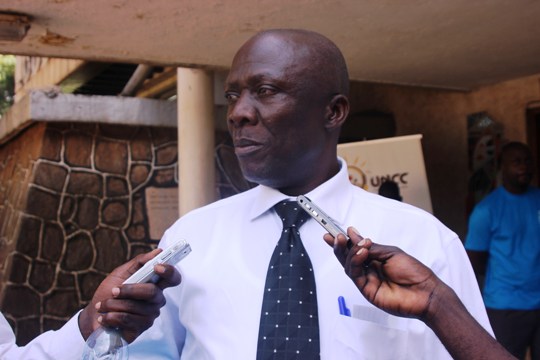The Territorial Police in Mpigi registered a disturbing incident of teen suicide, after a one Kasule Arafat, an 11-year-old, P.4 pupil of Kabira UMEA Primary School, committed suicide by hanging. The facts gathered indicate that on the 14.09.2022, at about 8am, the victim reported to school, but did not attend classes. He disappeared from the school and a search was conducted, only to find him dead, and the body hanging on a mango tree, at St. Luke Catholic Church, Kyanja, which is located about 250 metres from the school. The body was taken to Gombe Hospital for Post -mortem.
It is so devastating to the female, friends, the school and the community for such a young child, to die because of overwhelming hopelessness or frustration. All parents, siblings, classmates, and neighbours were left wondering what could have driven him and how they could have prevented it from happening.
Most teenagers commit suicide due to the pressure to perform academically, act responsibly and or the pressure to fit in socially among fellow teenagers. Young people with mental health problems – such as anxiety, depression, bipolar disorder, or insomnia – are at a higher risk for suicide thoughts. Tears going through major life changes (parents’ divorce, parental separation, financial changes), and those that ae tortured or bullied are at greater risk of suicide thoughts.
We therefore, urge parents, guardians and local leaders, to watch out for things that increase the risk of suicide among teens. These include; a psychological disorders especially depression, bipolar disorder and alcohol, drug abuse, feelings of distress, irritability or agitation, feelings of hopelessness and worthlessness, that often come with depression, previous suicide attempts, family history of depression or suicide, emotional, physical or sexual abuse, lack of a support network, poor relationships with parents or peers, and feelings of social isolation, struggling with their gender or unsupportive family.
Some of the warning sings of suicide among teens, often happens after a stressful life event, such as problems at school, torture, bullying, divorce of major family conflict. Teens who are thinking about suicide might talk about death or suicide; give hints that they might not be around anymore, talk about feeling hopelessness or feeling guilty, pull away from friends or family; write songs, poems, letters and drawings about death, separation and loss. They also lose the desire to take part in activities, have trouble concentrating, have changes in eating or sleeping habits, engage in risk-taking behaviours and or lose interest in school or sports.
It is therefore, important for parents to know the warning signs, so that teens who might be suicidal, can get the help they need. Some adults fell that kids who threaten to hurt themselves are just doing it for attention. This can increase the chance of them hurting/harming themselves.
Always keep a close eye on a teem who is depressed from his or her problems with friends, grades, sleep and irritable rather than chronic sadness or crying. Try to keep the lines of communication open and express your concern, support and love. If your teen confides in you, show that you take those concerns seriously. A fight with a friend might not seem like a big deal to you, but for a teen it can feel immense and consuming. Do not minimise or ignore, what your teen is going through, as this can increase their sense of hopelessness. If your teen does not feel comfortable talking with you, suggest a more neutral person such a relative, a clergy, a coach, school counsellor or family doctor.
Some parents are reluctant to ask teens if they have been thinking about suicide or hurting themselves. It is always a good idea to ask, even thought its hard. Sometimes, it helps to explain why you are asking. For instance, you might say; “I have noticed that you have been talking a lot about wanting to be dead. Have you been having thoughts about trying to kill yourself?
If you have learned that your child is talking about suicide, get help right away. From a Family Doctor, Psychologist or Psychiatrist. Remember that conflicts between a parent and child can make things worse for teens who feel isolated, misunderstood, devalues or suicidal. Get help for family problems and resolve them in a healthy way. Tell the mental health professional if your family has a history of depression, substance abuse or domestic violence. Talk about any other stresses at home, such as an ongoing environment of criticism.
For parents who have lost a child to suicide, the pain and grief can be intensified. These feelings may never completely go away. It’s important to keep in contact with others. Do not isolate but find supportive friends, to talk with about your child and your feelings. Remember that the other family members are grieving too. Be there for each other through the tears, anger and silences. The healing process takes time; therefore, counselling and support groups are helpful. Seek them for help.
SCP Enanga Fred
Police Spokesperson
20th September 2022





